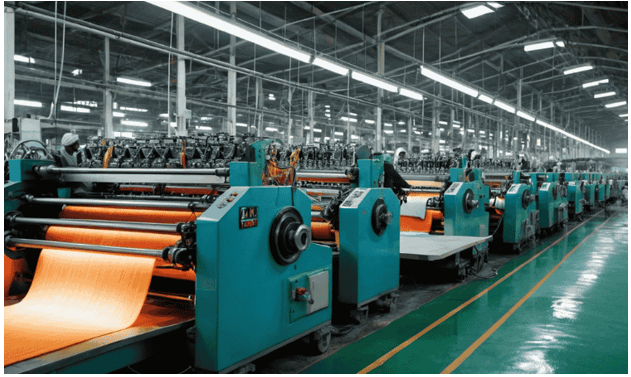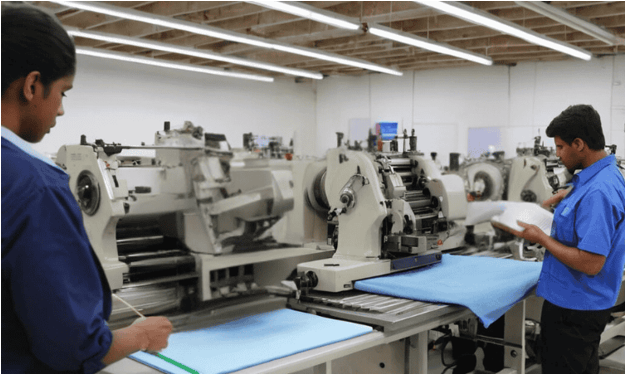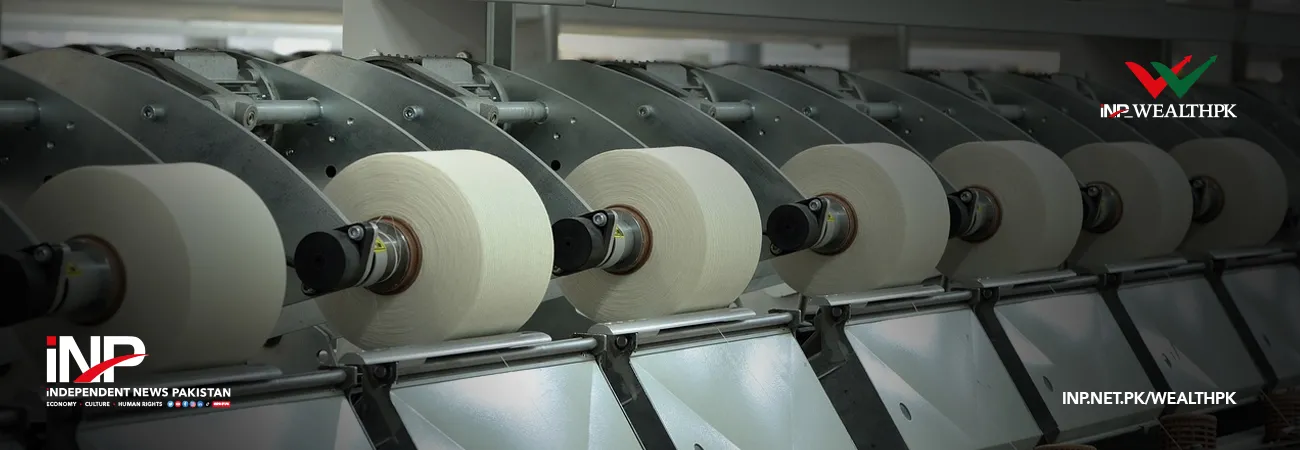INP-WealthPk
Muhammad Saleem
Modern machinery and a skilled workforce are vital for the textile sector’s development and competitiveness. Dr Mahmood, a teacher at a textile institute, told WealthPK that the textile sector was the backbone of the national economy, fetching billions of dollars in exports and providing jobs to hundreds of thousands of people. He said technology was rapidly changing every segment of the society, and the textile sector was no exception. He said that business rivals of Pakistan were embracing innovative technologies and efficiently catering to customers’ needs. However, he noted that Pakistan’s textile sector was still stuck in a rut with decades-old issues regarding energy and unskilled labour, leaving entrepreneurs in an outlandish situation. “The textile industry is battling multiple challenges due to outdated infrastructure as most manufacturing units operate with low levels of automation.
This issue is leading to high defect rates and inefficiencies,” he noted. Mahmood said: “We must raise the bar for the current infrastructure of the textile industry to outshine our business rivals and win the trust of international clients. Outdated infrastructure hampers our competitiveness in the global market, allowing Pakistan’s business rivals to take full advantage.” “We need to conduct a study to check how business rivals of Pakistan are upgrading their textile sectors and ensuring modern training for the workforce. Without substantial investment in modernising facilities and improving logistics, we will not be able to exploit the potential of our textile sector,” he added. Discussing the major challenges hindering improvements in infrastructure and labour training, Mehmood said that political instability was the elephant in the room.
“Due to political uncertainty, businessmen are shying away from investing in the country as they need a stable and business-friendly environment.” He said the lack of a consistent energy supply was also a major stumbling block, hitting production schedules and increasing costs for manufacturers. “High cost of products does not yield any fruit for entrepreneurs.” He said political instability also scared off foreign investors, which is crucial for infrastructure upgrades of the textile sector. “We need to upskill our entrepreneurs and workers simultaneously. There’s also a cultural aspect, as many businesses are hesitant to invest in training,” he said. Bilal Ahmed, a textile manufacturer, underscored the importance of labour training for the development and progress of the textile sector. “We are still stuck in the past using decades-old power looms that guzzle electricity.
We need energy-efficient machinery with skilled labour. Power-loom workers need modern training,” he underscored while talking to WealthPK. Ahmed said the latest machinery and skilled labour could boost productivity and quality in manufacturing. “Majority of the textile industry workforce lacks the know-how to operate modern machinery. We cannot succeed in the international market without adhering to international quality standards,” he said, adding that investing in training programmes was vital to hone the capabilities of workers. “International buyers are increasingly demanding higher standards, and we can overcome this hurdle if the government incentivises the millers. We need to launch modern training programmes and collaborate with Chinese entrepreneurs to bring in modern machinery,” he said.


Credit: INP-WealthPk




